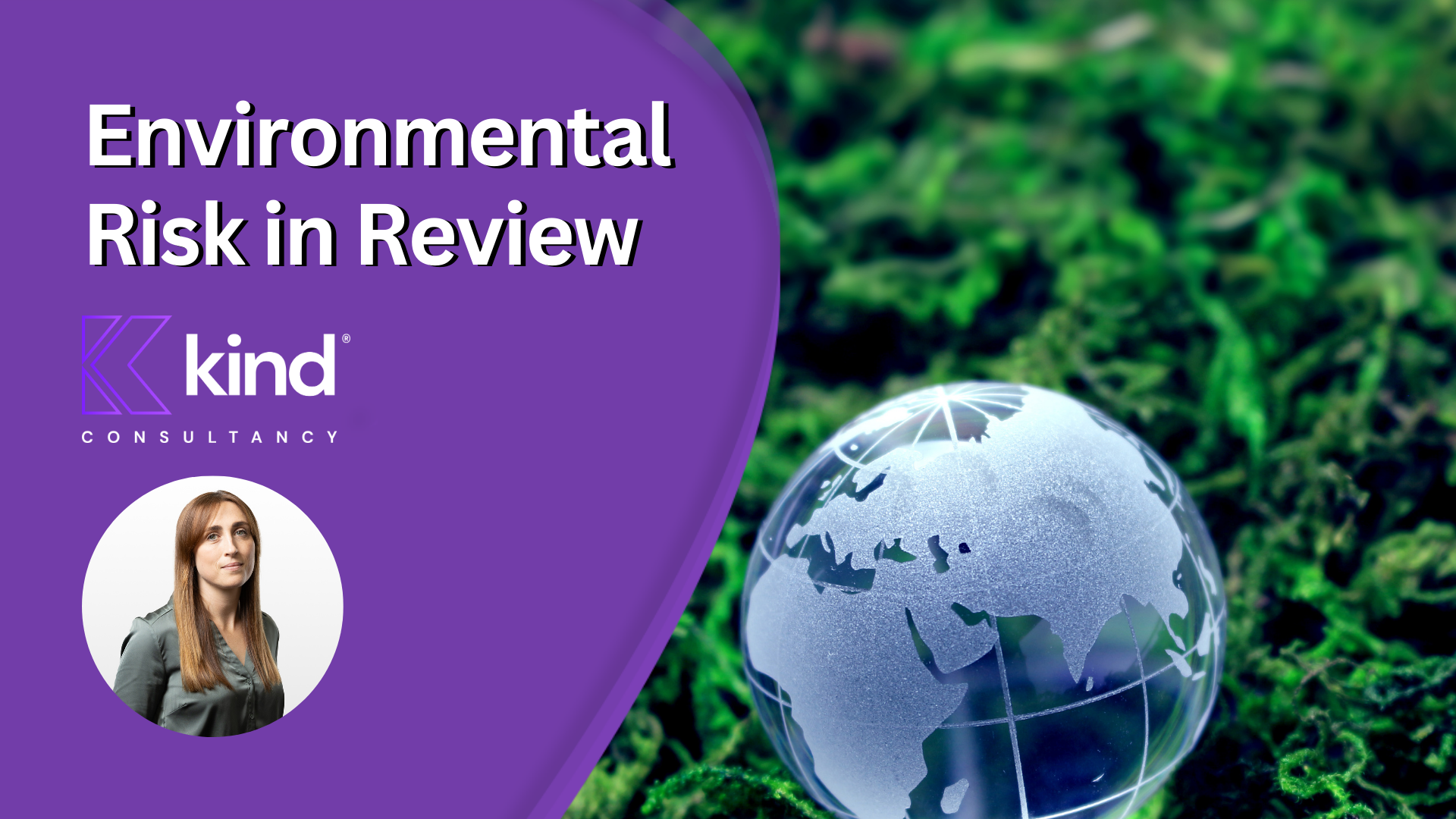Environmental Risk in Review
Research overwhelmingly shows that climate change is causing more frequent extreme weather events, and is making those events more severe. This year has seen periods of extreme rainfall, heatwaves, droughts and wildfires, all happening more frequently and intensely than in previous decades. Just this month there has been torrential rain in parts of Spain, two weeks after the nation suffered heavy flooding.
Climate change and the environment are issues I personally care about and I wanted to take a look at how these link to my work through the lens of Environmental Risk. The impact of extreme weather on the Banking and Finance sectors is complex and multifaceted. One clear and direct example is extreme weather affecting staff, making it dangerous or impossible for them to work when their region is experiencing these kind of extreme weather events. Infrastructure can also be damaged, and the two together can completely halt normal banking operations and hugely extend the time it takes to complete tasks. Even in a digitised, highly connected Banking ecosystem, flooding and extreme heat can effect servers and data centres, halting functions completely.
On the positive side, recent years have seen ESG (environmental, social and governance) being discussed much more frequently in the Financial Services world. Organisations look to be more environmentally friendly and in turn invest in companies that have a positive impact on the planet. Environmental Risk includes consideration of all of these factors, incorporating both a consideration of how your business could be or is being affected by climate change and how the business operates is itself effecting the environment.
Environmental Risk is also inherently a part of Reputational Risk. “Green credentials” can be a deciding factor for consumers deciding who to bank with, with surveys of younger consumers especially showing that a bank’s ethics and environmental impact are an increasingly important issue for them in determining who they want to hold their money.
There is a potential downfall in looking at ESG issues primarily as a matter of appearances for consumers. The concept of “greenwashing” – businesses advertising themselves as having a positive environmental impact in a way that is misleading, dishonest, or fails to mention their negative environmental impact – is increasingly becoming a part of mainstream conversation around ethics in business. As with so many Governance issues, I think it’s safe to say that the “appearance” of being on the right side of an issue is not good enough and has not been for some time. Back in 2022 we saw HSBC taken to task by the Advertising Standard Authority for running adverts trumpeting their investment in green initiatives without disclosing their significant contribution to climate change through investment in businesses This year the FCA formalised rules around greenwashing, coming into effect back in May and aiming to ensure sustainable products and services “consumers” are sold are accurately described.
Personally, I have switched banks in recent years because of ethical investment concerns, and I am glad to know that my money is going towards causes that I care about. In the UK we’ve seen great work by Unity Trust Unity Trust, The Co-Op Bank, Nationwide and others as they’ve prioritised sustainable lending, supporting businesses who have a positive social and environmental impact.
As climate change worsens, I think we’re going to keep seeing this as a big topic especially for global banks with large carbon footprints. But no matter the size of your organisation, in 2024 every Financial Services business needs to be thinking actively and carefully about their environmental impacts, not just in how they work day to day but in who they work with and where their money is going.




